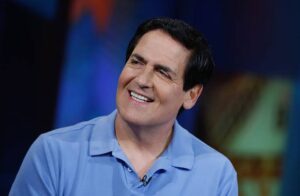
There are plenty of reasons to be skeptical of other people’s advice on how to be successful, even if that advice is coming from a billionaire.
“Be careful about listening to other people’s advice. Because they can only tell you what’s worked for them, and it may or may not apply to you,” star psychologist and best-selling author Adam Grant has warned.
Someone else’s vision of ultimate success may be your worst nightmare. And even if you agree on the goal, those with different talents and circumstances will generally take very different paths to get there.
Which is why I am usually leery of passing along famous people’s success advice. But I am going to make an exception for Shark Tank star and all-around mogul Mark Cuban’s recent musings on how to “be world-class great” on the Lex Friedman podcast. Cuban’s advice is both flexible and backed by an incredible array of super achievers and everyday people.
*Mark Cuban’s long and winding path to success*
*
First, what did Cuban say exactly? The Mav’s owner kicked off with a bit of encouragement for those who feel they still haven’t found their way in life.
“I’m a hardcore believer that everybody has something that they’re really, really, really good at — that could be world-class great. Every single human being on this planet,” Cuban explains.
The key is finding the particular niche in which you have the potential for world-class greatness. How do you do that? Forget aptitude tests and complex reflection exercises. Cuban’s advice is simple and drawn from his own experience. Get out there and do stuff. Lots of stuff. Stuff that might seem wacky and way outside your comfort zone.
“The hard part is just finding what that [greatness] is and, in some places, having resources to enable it,” he continues. “But be curious so you can find out what it is.”
Cuban, for example, had no inkling that technology might be the right sector for him until well into his twenties. He even confesses to cheating his way through the only computer science-related class he took in college. But while working at Mellon Bank in Pittsburgh after graduation, Cuban stumbled on programming.
“I could go seven hours, eight hours [of coding] without taking a break, thinking it was 10 minutes, because I was concentrating so hard and so excited and really loved it,” he previously explained on Shark Tank. “That’s when I realized that I can be really, really good at technology.”
Cuban quit his banking gig and moved to Texas to accept a tech sales job. Eventually he started his first company, a software business called MicroSolutions, using his tech and sales skills. His journey to billionaire status had begun.
On the podcast, Cuban insists the long, winding road to discovering the area in which he could become world-class isn’t unique to him.
“You just don’t know what that’s going to be until you go out and experience different things,” he said. “Enjoy your life, find things to smile about, be curious, read, watch, expose yourself to as many different ideas as you can, because something’s going to click at some point. You may be 15, you may be 25, you may be 55, but it can happen.”
*Success is about curiosity and experimentation*
This is a hopeful message for those who feel a bit lost in life. Is it just pie-in-the-sky encouragement from a well-meaning but out-of-touch billionaire? Probably not. When LinkedIn asked members for the top bit of career advice they would give to their 20-year-old selves, the same tip came up again and again. It’s basically identical to Cuban’s advice.
“Don’t spend so much time planning and researching the perfect career path — you don’t know what ‘work’ is yet anyway. Aggressively explore all options that seem interesting, learn, iterate, and you’ll arrive to the ‘perfect path’ much faster,” was one representative response from Hireproof co-founder Max Korpinen.
Again and again, respondents told their younger selves to be more curious and try more things. Like Cuban, they insisted that the way to discover what you’re great at is to experiment with different things out in the world. Agonizing, planning, and reflecting just won’t get you there.
Fellow mogul Jeff Bezos has also spoken of his “bias towards action” and his belief that you get further by learning from experiments than you do by laboriously strategizing. (He’s also been candid about the importance of admitting to yourself what you’re not good at.)
Artists too insist that, when it comes to finding your unique path to success, action and experimentation is key. Art school professors and working creators alike have written about how simply tinkering around and producing more work is likely to get you much further than aiming to create just a few, perfect pieces.
All these various voices come to the same conclusion as Cuban. Chances are extremely poor that you will figure out your path to success in your head and then follow it. Instead, if you want to achieve greatness, you have to accept that you’re going to have to get dirty and take plenty of wrong turns. Achievement comes from messy real-world experimentation, stumbles, and course corrections rather than some grand plan you made at the beginning.





